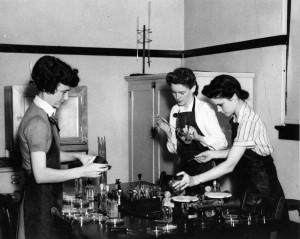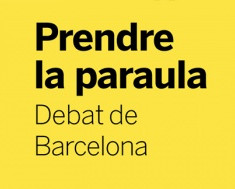
Working in Lab (MSA)
John and Jennifer are Yale University Biology graduates. Their CVs are identical and both have been appointed for equal positions as laboratory technicians. Now their credentials must be reviewed by 127 lecturers in Biology, Chemistry and Physics who, on the basis of their documents, must decide their salary. What they don’t know is that John and Jennifer are characters invented by the university for an experiment on gender differences. Researchers have created a situation in order to gauge the extent of gender bias. The conclusion is clear: with the same qualifications, it is better to be called John than Jennifer. The gross annual salary suggested for Jennifer is 3,720 dollars less than that proposed for John. The study, published in 2012 in Proceedings of the National Academy of Sciences, was headed by a woman, Jo Handelsman, who is presently Associate Director for Science at the White House Office of Science and Technology Policy and, as such, President Obama’s adviser on the implications of science for the nation.
Few women rise to such heights because, despite advances, science is still sexist. With the same talent as male colleagues women are frequently paid less, have more difficulties prospering in their careers, obtain fewer grants and are more likely to leave their jobs. This is a world-wide trend. Women who head research groups are still in a minority. There are only three female vice-chancellors in Spain’s 48 public universities. In order to occupy this position one must first be a professor and, in Spain, only 15% of university chairs are occupied by woman.
Women are also neglected in terms of public recognition of their work. Of the 457 Nobel Prizes conceded since 1901, only eleven have gone to women, although many women have played a major role in teams where male colleagues have received the award. One of the better known historical cases is that of Rosalind Franklyn, a biophysicist and crystallographer at the University of Cambridge (an institution which didn’t admit women to full membership until 1948 and, even then, the annual quota was 10% for years thereafter). As a researcher, Franklin made a major contribution when she discovered the structure of DNA in one of her experiments yet, after she had naively shown Francis Crick and James Watson the images she had obtained, the two men went ahead and published the results in Nature and, accordingly, were hailed by the international scientific community and awarded the Nobel Prize. They are still publically recognised as the discoverers of the molecular structure of DNA when, in fact, it was Rosalind Franklyn who should be hailed as the women who opened up a new era in medical science.

Florida State College for Women students experimenting in the chemical lab
This tiny presence of women in the scientific elite contrasts with the number of women graduates and PhD holders. While women students are still a minority in some types of engineering, in other areas such as the life sciences they represent some 75% of graduates and more than 60% of PhD holders. The percentages dwindle after women turn thirty, an age when the majority start thinking about having children. At this point statistical graphs, which had previously shown two lines (one for women and one for men) of more or less parallel paths, now form a cross when the women’s line intersects the men’s line to give a scissor-shaped picture in which the lower blade, the women’s line, now drops sharply. There are exceptions but there is no denying that maternity and an absence of measures to help reconcile work and family duties are major obstacles to high-level performance, to an extent that is so discouraging that some women give up their careers. Apart from prejudice, science is demanding: one must publish, attend congresses, present projects for grants when calls for submissions won’t wait, travel… Without support, there is little chance of success even for the most devoted mothers who spend hours at the computer writing up projects and breastfeeding at the same time.
The fait accompli that men constitute the majority in the scientific elite is so internalised that many women who become leaders, or who publish in the most prestigious magazines are frequently confronted with stereotypes. It is not infrequent that, before knowing a woman scientist’s identity, people assume that this privileged mind working in top-level scientific studies belongs to a man. Some eminent women scientists say that they have been invited to speak at congresses only to find that they are presented in the programme as Mr. X instead of Ms. X.

Astronaut Mae Jemison Working in Spacelab-J
Breaking through the glass ceiling which acts as a barrier to the advancement of women scientists entails putting an end to many deeply entrenched forms of inertia in our society. To begin with, the bias is not exclusive to the scientific world. Difficulties in reconciling work and family life are present in all professions which entail a certain degree of competitiveness and commitment, ranging from science through journalism and music to business leadership. A mother is 79% less likely to be contracted than a childless woman, and will also be paid less, according to an article published in a special issue of Nature devoted to women. This contrasts with the fact that a man who has children enjoys a professional advantage.
In the special issue of Nature, several authors present options for remedying this situation which is so deep-rooted in our society. What should be done about professions in which, apart from working conditions (which don’t help either), competitiveness means there is no respite? What instruments might redress the scissor effect? Application of quotas is controversial and, in particular, fails to rectify underlying problems such as an absence of measures adapted for a scientific career in order to help women reconcile work and family life. Brigitte Mühlenbruch, president of the European Platform of Women Scientists in Brussels, and Maren A. Jochimsen, director of Essen College of Gender Studies in Germany, have brought together in this special issue of Nature a number of possible solutions. First of all, although it is recognised that the EU Research and Innovation programme Horizon 2020 incorporates gender as an issue to be taken into account for researchers preparing proposals, they also decry the fact that the committees that determine who will receive the grants mostly consist of men. So, too, do the panels of scientific advisers who decide whether an article is to be published or not. Mühlenbruch and Jochimsen suggest that such committees and panels should be comprised by at least 40% women.
They also recommend that there should be greater flexibility for women with children who are presenting projects for funding, that measures should be taken to help the family when a job entails mobility and, moreover, that the fact of a woman’s having children and thus needing time off work should be seen as yet another merit rather than as a negative factor.
The «Women and Science» debates took place at CCCB on feburary 2015. Available online the videos of the round tables ‘Women and science: the view from institutions of quality research‘ and ‘In first person: the voice of women researchers‘.
LLEGIR MÉS-LEER MÁS-READ MORE











